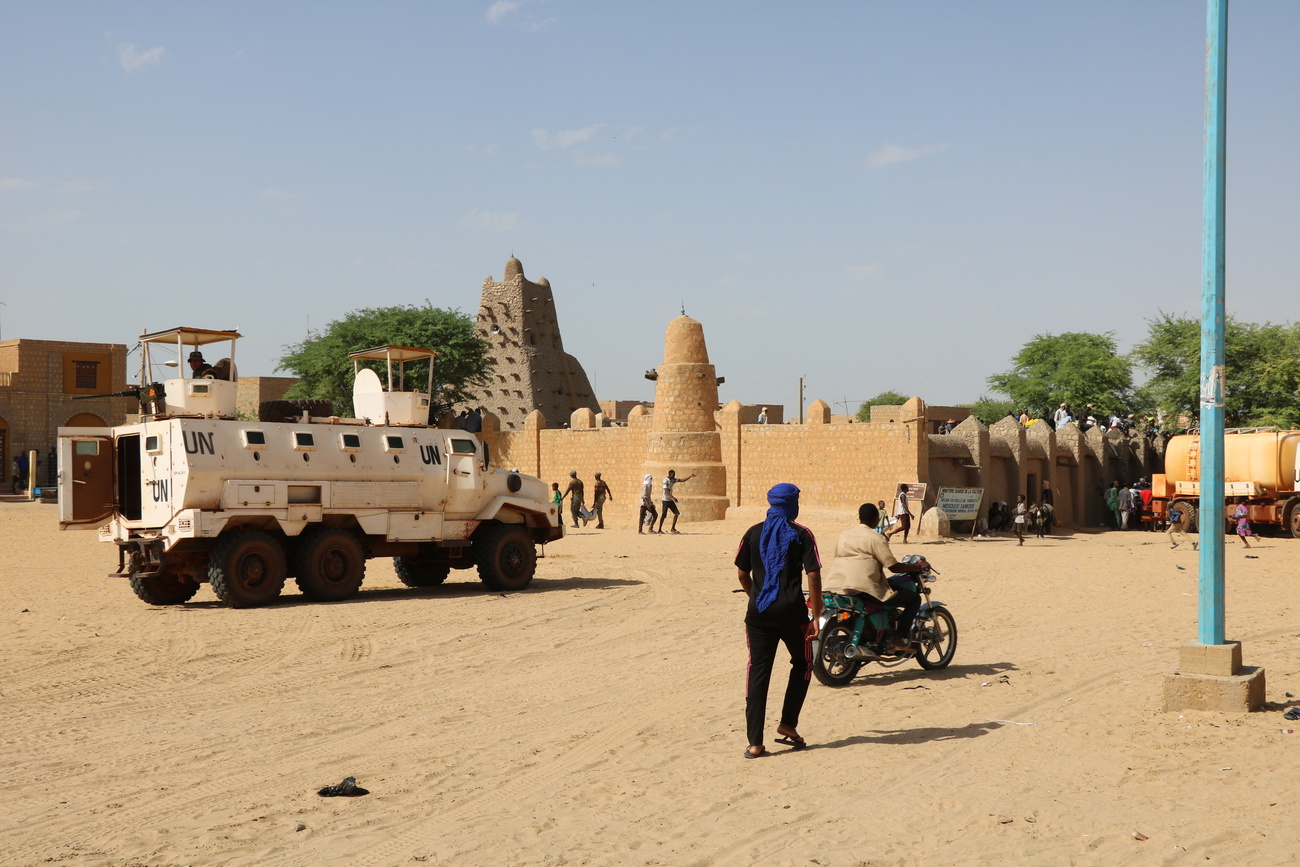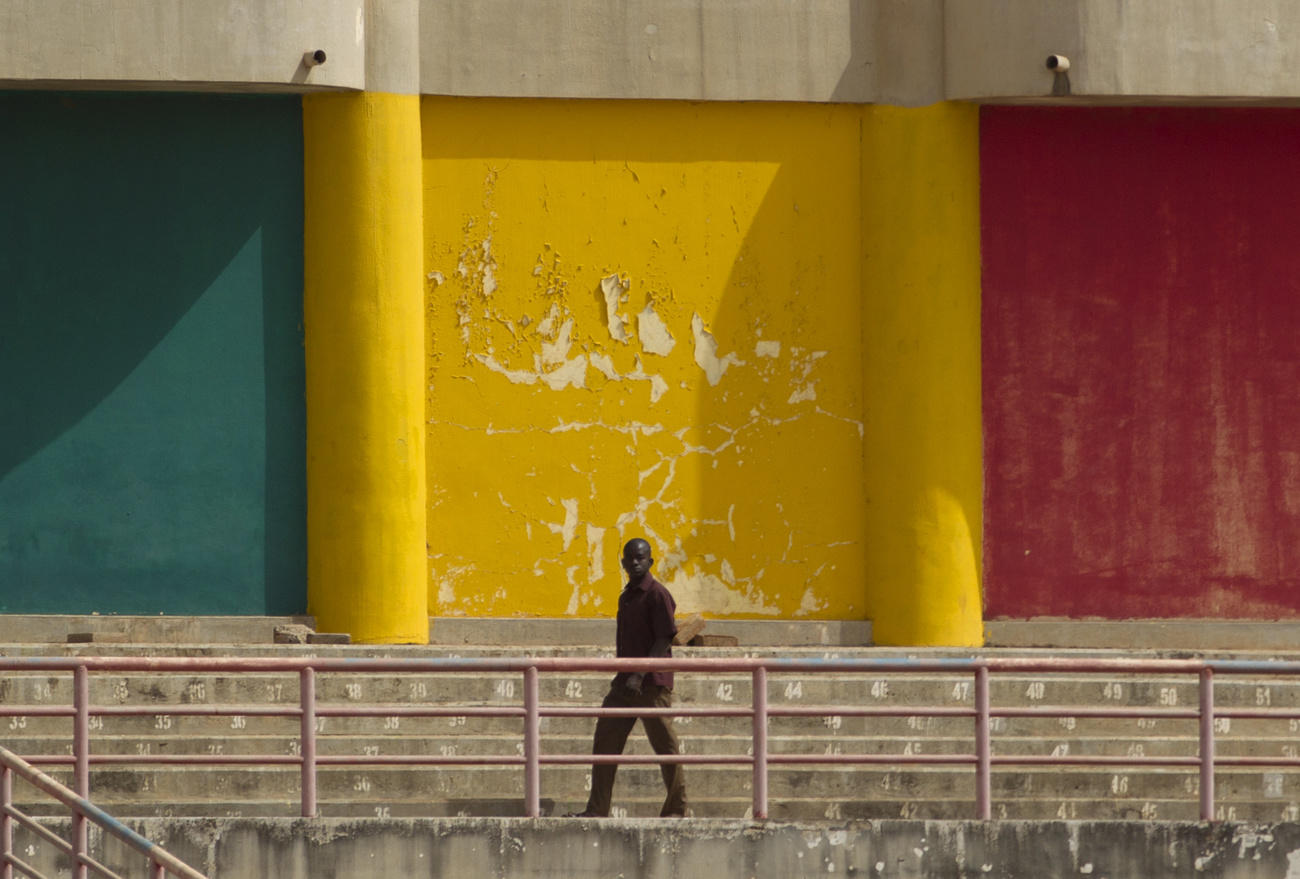
Switzerland analyses impact of Mali ban on NGO

The Swiss foreign ministry is examining the consequences of last week’s decision by the military junta in Mali to ban the activities of Swiss humanitarian organisation Geneva Call.
Contacts will be established according to the needs of Swiss actors in the country, the ministry said on Monday.
In Thursday’s decree, the junta banned the presence of Geneva CallExternal link because of “illegal activities”. The exact charges against the NGO, which tries to ensure that non-state armed groups comply with international humanitarian law (IHL), were not specified.
In a statementExternal link published on Saturday, the Geneva-based NGO “noted with regret” the Malian decision. “Geneva Call always works in full transparency and in strict compliance with the international obligations of states,” it said.
Switzerland supports the NGO financially as part of its humanitarian and peace policy, but it does not dictate the operational choices of the entirely independent organisation. Geneva Call, launched more than 20 years ago, has been a partner for many years in a number of armed conflicts. It has engaged in dialogue with nearly 180 groups, with some of them signing commitments to honour IHL.
At the end of November the junta in Mali banned the activities of all NGOs financed or supported by France. Other countries are concerned by the decrees of the Malian authorities.

More
Switzerland offers its peace expertise to Mali after coup
Military coup
Since seizing power in 2020, the military rulers in Mali, a former French colony in West Africa, have fallen out with France and have instead turned to Russia to help in their fight against Islamist insurgents who are wreaking havoc across much of the country, as the BBC explainsExternal link.
However, human rights groups have accused the Russians working with Mali’s army of atrocities, such as the killing of around 300 civilians in April.
Meanwhile, the Islamist insurgency, which was the soldiers’ justification for taking power has only got worse. More than 4,000 people have been killed in the past year and many parts of the country are outside the control of Mali’s military junta, according to the BBC.

More
Local partners of Swiss aid agency killed in Mali attacks

In compliance with the JTI standards
More: SWI swissinfo.ch certified by the Journalism Trust Initiative






























You can find an overview of ongoing debates with our journalists here . Please join us!
If you want to start a conversation about a topic raised in this article or want to report factual errors, email us at english@swissinfo.ch.